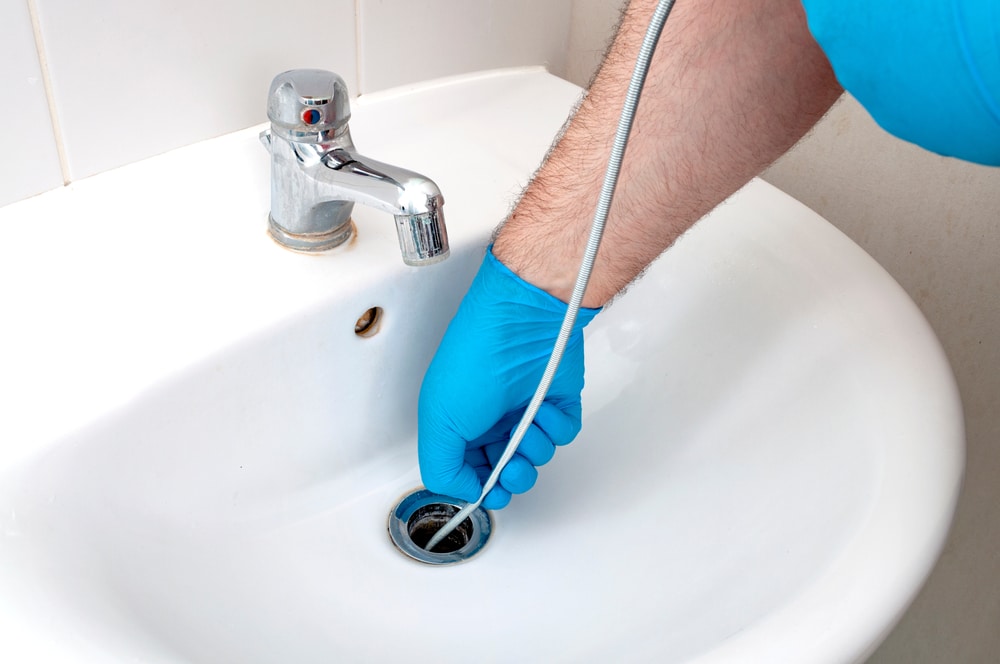
As homeowners, we often take our plumbing systems for granted. We assume that everything is working as it should be, and we only pay attention to it when there is a problem. However, it is important to keep your drains clean to prevent clogs and backups from occurring. In this article, we will discuss the warning signs that indicate your drains need to be cleaned.
What are Drains?
Before we dive into the warning signs, let’s first understand what drains are. Drains are a crucial component of your plumbing system. They are responsible for carrying waste and wastewater away from your home and into the sewer or septic system. Drains come in different shapes and sizes, but they all serve the same purpose.
Warning Signs that Indicate your Drains Need to be Cleaned
- Slow Drainage: One of the most common warning signs that indicate your drains need to be cleaned is slow drainage. If you notice that water is draining slowly from your sink or shower, it could mean that there is a clog in the drain. Over time, dirt, hair, soap scum, and other debris can accumulate in your drains, causing them to slow down.
- Foul Odors: Another warning sign that your drains need to be cleaned is foul odors. If you notice a foul smell coming from your drains, it could mean that there is a buildup of organic matter in the pipes. As this organic matter decomposes, it produces an unpleasant odor that can make your home smell bad.
- Gurgling Sounds: If you hear gurgling sounds coming from your drains, it could mean that there is a clog in the drain. The gurgling sound is caused by air trying to escape from the drain as water tries to flow through it. This is a common problem in toilets, but it can also occur in sinks and showers.
- Water Backups: Water backups are a clear sign that your drains need to be cleaned. If you notice that water is backing up in your sink or shower, it could mean that there is a blockage in the drain. This can be caused by a buildup of debris, tree roots, or other foreign objects in the pipes.
- Multiple Clogged Drains: If you have multiple clogged drains in your home, it could mean that there is a problem with your main sewer line. The main sewer line connects all of the drains in your home to the municipal sewer system. If there is a clog in the main sewer line, it can cause backups in multiple drains throughout your home.
- Fruit Flies: If you notice fruit flies in your home, it could mean that there is a buildup of organic matter in your drains. Fruit flies are attracted to decomposing organic matter, and they can breed and multiply in your drains.
- Bubbling Toilets: If your toilet bubbles when you run water in the sink or shower, it could mean that there is a clog in the drain. The bubbling is caused by air trying to escape from the drain as water tries to flow through it.
- Strange Noises: If you hear strange noises coming from your pipes, such as banging or rattling, it could mean that there is a problem with your plumbing system. This could be caused by a buildup of sediment in your pipes, which can cause the pipes to vibrate or shake.
- Water Stains: If you notice water stains on your ceiling or walls, it could mean that there is a leak in your plumbing system. Leaks can occur in your pipes or around your fixtures, and they can cause water damage to your home.
-
- Slow Flushing Toilets: If your toilet is flushing slowly or not flushing at all, it could mean that there is a clog in the drain. This is a common problem in toilets, and it can be caused by a buildup of toilet paper, feminine products, or other debris in the pipes.
- Standing Water: If you notice standing water in your sink or shower, it could mean that there is a clog in the drain. This can be caused by a buildup of hair, soap scum, and other debris in the pipes.
- Water Pressure Issues: If you are experiencing low water pressure, it could mean that there is a clog in your plumbing system. This can be caused by a buildup of sediment in your pipes, which can restrict the flow of water.
- Increased Water Bills: If you notice an increase in your water bills, it could mean that there is a leak in your plumbing system. Leaks can occur in your pipes or around your fixtures, and they can cause water to be wasted and your bills to go up.
- Recurring Clogs: If you are experiencing recurring clogs in your drains, it could mean that there is a problem with your plumbing system. This could be caused by a buildup of debris, tree roots, or other foreign objects in the pipes.
- Old Pipes: If you have old pipes in your home, they may be more susceptible to clogs and backups. Over time, pipes can corrode and deteriorate, which can cause them to become clogged or even burst.
How to Prevent Clogs and Keep Your Drains Clean
Now that we have discussed the warning signs that indicate your drains need to be cleaned, let’s talk about how to prevent clogs and keep your drains clean.
- Use a Drain Strainer: A drain strainer is a simple tool that can help prevent clogs in your drains. It fits over the drain and catches hair, food particles, and other debris before it can go down the drain.
- Dispose of Grease Properly: Grease and oil can solidify in your drains and cause clogs. Instead of pouring grease down the drain, dispose of it in the trash.
- Use Enzyme Cleaners: Enzyme cleaners are a natural way to keep your drains clean. They break down organic matter in the pipes and prevent clogs from forming.
- Don’t Flush Non-Flushable Items: Only flush toilet paper and human waste down the toilet. Feminine products, wipes, and other items can cause clogs in your plumbing system.
- Schedule Regular Drain Cleaning: It is important to schedule regular drain cleaning to prevent clogs and backups from occurring. A professional plumber can clean your drains and identify any potential problems before they become a major issue.
Conclusion
In conclusion, it is important to pay attention to the warning signs that indicate your drains need to be cleaned. Slow drainage, foul odors, gurgling sounds, water backups, multiple clogged drains, fruit flies, bubbling toilets, strange noises, water stains, slow flushing toilets, standing water, water pressure issues, increased water bills, recurring clogs, and old pipes are all signs that your drains need to be cleaned. By taking preventative measures and scheduling regular drain cleaning, you can keep your plumbing system running smoothly and avoid costly repairs.

